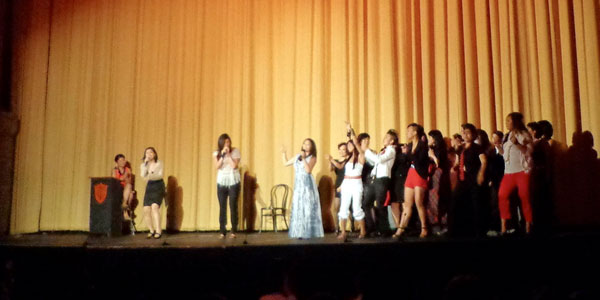
by Erin Jerri Malonzo Pangilinan
I am a domestic violence survivor.
It’s hard to have courage to speak these words to my family and close friends, let alone write that sentence for publication. I was afraid to talk about it.
As the youngest daughter of Philippine immigrants and an only sister, I am told to stay quiet and demure. Domestic violence is one of the most taboo and silenced issues in the Asian Pacific American community, and this needs to change.
Most people don’t know that immigrant women are at higher risk for domestic violence. Compared to the general U.S. population, the domestic violence rate for a foreign-born woman married to a U.S. citizen is three times higher.
Not talking about it because of fear of shame and embarrassment fails to recognize a critical problem impacting our community, and this hurts us more.
Domestic violence is often portrayed only as physical violence, but violence comes in forms that aren’t always visible. I had emotional wounds after staying in emotionally abusive, unhealthy, unequal, and co-dependent relationship for years. When you constantly compromise yourself, it’s easy to stay stuck in a viscous cycle.
Years ago, I woke up with a purple bruise on my arm. After my ex and I broke up, I stayed in contact with him thinking we could still be friends.
When Rihanna and Chris Brown released the track “Cake,” I had a flashback to many memories, ones where my ex and I used to make hip hop tracks together and others where I recalled feeling whiplash on neck and back.
When he tried to mail me gifts, thinking he could buy my love back from me, I finally cut things off.
Recently, Malia Connor, an APA poet, pointed at me during a performance and read “when she bleeds, I bleed.” In battling domestic violence, I used to think that I could never stop crying and bleeding, that my vagina was too ugly and damaged to be able to love anyone. It’s taken me a long time, but I’ve reclaimed my body, heart, soul, and mind back. I don’t want any other woman to go through what I went through. I am dedicated to helping other sisters heal and believe that I can love in a healthy relationship again.
This year, I decided to commit to getting involved in ending violence against women. These past few months, I had the privilege of serving as Outreach Co-Chair for the Asian Pacific American Vagina Monologues in San Francisco Bay Area, the first time a National Asian Pacific American Women’s Forum (NAPAWF) chapter organized the production for V-Day, which strives to end violence against women and girls. NAPAWF is the only national multi-issue organization for APA women and girls. NAPAWF advocates on numerous policy issues, from reproductive justice, human trafficking, immigrant rights, and more.
APA women created multiple spaces for our community to hear our voices. I hope that our communities continue to break our culture of silence and cycle of violence as we celebrate APA womanhood.
ABOUT THE AUTHOR: Erin is an Outreach Co-Chair for the Asian Pacific American Vagina Monologues 2012 (APAVM12) presented by the National Asian Pacific American Women’s Forum (NAPAWF Bay Area) + V-Day. Erin is a prolific writer and has worked as a Philippine News Correspondent for over six years and as a Change.org Immigrant Rights Cause blogger. She currently contributes to Hyphen magazine as staff for the online politics section. Read more work from Erin at erinjerri.com. More at Filipina Women’s Network and South Asian Sisters.







